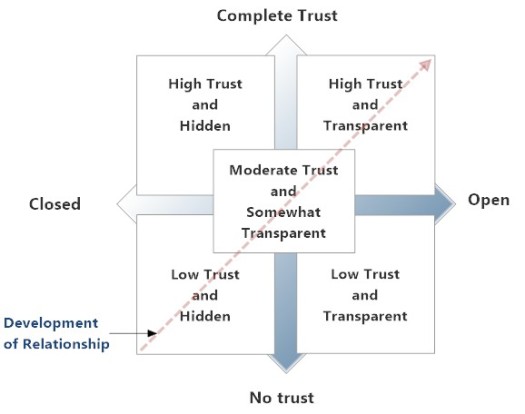EXCERPT FROM the Introduction of Ministering Forward: Mentoring Tomorrow’s Christian Leaders
 During my teen years, I helped my father build cabins at a Christian camp. Dad was the pastor of a small church, but he was also a carpenter who used his skills to supplement the family income. He took me along with him to help.
During my teen years, I helped my father build cabins at a Christian camp. Dad was the pastor of a small church, but he was also a carpenter who used his skills to supplement the family income. He took me along with him to help.
I enjoyed these times because it gave me the opportunity to spend quality time with Dad in an otherwise very busy phase of his life. One of the first things he taught me was how to hammer nails without damaging the wood. At the time, I thought I was helping him, but I soon realized he could have finished the job much more quickly had he done it himself. It was much later that I understood these trips to the camp hadn’t been just about me helping him build cabins; they had been about me spending time with Dad and developing a relationship with him. I learned many life lessons during our lunchtime discussions, and I observed how he related to other workers.
He was more than just my father; he was also my mentor. We didn’t use that term in those days, but what we now call mentoring indeed happened in our relationship. And yes, I did acquire some basic carpentry skills.
Years later, when I entered the ministry, my father became my ministry mentor. It was not a formal, spelled-out arrangement, but we served together. I worked with him as his assistant pastor. He had experience. I was inexperienced. I watched him do ministry, and we talked about it. He watched me do ministry and provided feedback. He knew how to do this mentoring thing because that’s what they do in the construction industry, except they call it “apprenticeship.”
We only worked together for a few months, but this season became the basis of many mentoring encounters with him in a lifetime of ministry. Since then, I’ve had many other mentors who have enriched my life and ministry. I have also had the opportunity to relate to others in a mentoring role.
At one point, a younger minister was assigned to me so I could supervise and advise him in his ministerial duties and activities. We agreed on some ground rules for the relationship and set a fixed weekly time to meet. We also had other opportunities to meet from time to time in a variety of ministry contexts. I established an open-door policy in which he usually had access to me. We had what I would now call an “intentional ministry mentoring relationship.”
My focus in this relationship was twofold: what was God’s best for this young minister, and how could I help the kingdom of God advance through his ministry? His focus was to receive the benefit of my life and ministry experience and apply it to his life and ministry.
As we met on a regular basis, we dealt with character issues, family matters, ministry strategies, ministry competencies, and relationships with other people–essentially no subject was off-limits. I would encourage, advise, and challenge. He would share his heart, his dreams, and his concerns. This mentoring context became a safe place for him to test his theories and ideas about life and ministry. I was a sounding board.
For the most part, I resisted telling him what I thought he should do, but I gave him the benefit of my opinions on ministry practices and relational issues, for whatever they were worth. This arrangement, which we kept in place for several years, contributed to a fruitful ministry for the younger minister. I was also thoroughly enriched as I gleaned from his perspective and participated in his excitement when things were going well, and his disappointments when there were setbacks.
Thinking back on this scenario, I was grateful for the privilege of having had the opportunity to make a positive impact on him, as well as having received the blessings of sharing in another’s ministry. I have subsequently had opportunities to mentor others in a variety of ministry contexts, with both positive and negative experiences and outcomes. On further reflection, I realized that I could be a mentor because I had been the beneficiary of mentors at different times throughout my own ministry journey. Others had invested time and demonstrated care for my development. I had also experienced times of looking for and not finding mentors who would walk with me during some of the crucial phases of ministry. There were also times when I wasn’t the best mentor to those who may have been looking for it from me. Sometimes I just didn’t know how to do it given the circumstance. Other times I didn’t have or make the time.
The combination of these experiences motivated me to understand better what mentoring is and how it works. This curiosity led me to research the subject…
Now I have written a book to invite Christian leaders to consider how they can integrate mentoring into their ministry to ensure the transfer of living faith and Spirit-empowered ministry to the next generation. This book will be available in July 2017.
 We have already begun to send books to those who have ordered. It is my hope that the book generates discussion on ministry mentoring in churches and Christian organizations. But not only discussion. We do not only want to reflect on mentoring. We want to engage those who will benefit from purposeful mentoring relationships.
We have already begun to send books to those who have ordered. It is my hope that the book generates discussion on ministry mentoring in churches and Christian organizations. But not only discussion. We do not only want to reflect on mentoring. We want to engage those who will benefit from purposeful mentoring relationships. I am pleased to report that my book on ministry mentoring is now ready for printing and should be available within a month or so. The whole publishing process has been a learning experience for me. I have spoken with many different people, read many articles, researched several different options, investigated different companies and have settled on publishing with a Canadian Christian company, Word Alive Press.
I am pleased to report that my book on ministry mentoring is now ready for printing and should be available within a month or so. The whole publishing process has been a learning experience for me. I have spoken with many different people, read many articles, researched several different options, investigated different companies and have settled on publishing with a Canadian Christian company, Word Alive Press. During my teen years, I helped my father build cabins at a Christian camp. Dad was the pastor of a small church, but he was also a carpenter who used his skills to supplement the family income. He took me along with him to help.
During my teen years, I helped my father build cabins at a Christian camp. Dad was the pastor of a small church, but he was also a carpenter who used his skills to supplement the family income. He took me along with him to help. An important part of establishing the mentoring agenda is for the mentor to know the story of the mentee. In their book on Deep Mentoring, Reese and Loane suggest that “if we are going to walk alongside others, seeking to pay attention with them to what God is up to in their lives, then we must pay attention to the story of their lives.”
An important part of establishing the mentoring agenda is for the mentor to know the story of the mentee. In their book on Deep Mentoring, Reese and Loane suggest that “if we are going to walk alongside others, seeking to pay attention with them to what God is up to in their lives, then we must pay attention to the story of their lives.” But it is not always an instantaneous deliverance. The pathway to that deliverance usually involves perseverance, endurance, and persistence. So how can you sustain that? Jesus shows us how it works. As he faced the humiliation and suffering of the cross, he focused on “the joy set before him” and “endured the cross, scorning its shame, and sat down at the right hand of the throne of God” (Hebrews 12:2, NIV). He kept his eyes on the ultimate prize. He persevered through the resistance because of the joy set before him–the joy that comes from an accomplished mission of providing salvation for humanity. There are undoubtedly many spiritual resources you can draw on to push through the resistance. At least one of them is to keep your eyes on the ultimate prize as Jesus did.
But it is not always an instantaneous deliverance. The pathway to that deliverance usually involves perseverance, endurance, and persistence. So how can you sustain that? Jesus shows us how it works. As he faced the humiliation and suffering of the cross, he focused on “the joy set before him” and “endured the cross, scorning its shame, and sat down at the right hand of the throne of God” (Hebrews 12:2, NIV). He kept his eyes on the ultimate prize. He persevered through the resistance because of the joy set before him–the joy that comes from an accomplished mission of providing salvation for humanity. There are undoubtedly many spiritual resources you can draw on to push through the resistance. At least one of them is to keep your eyes on the ultimate prize as Jesus did.